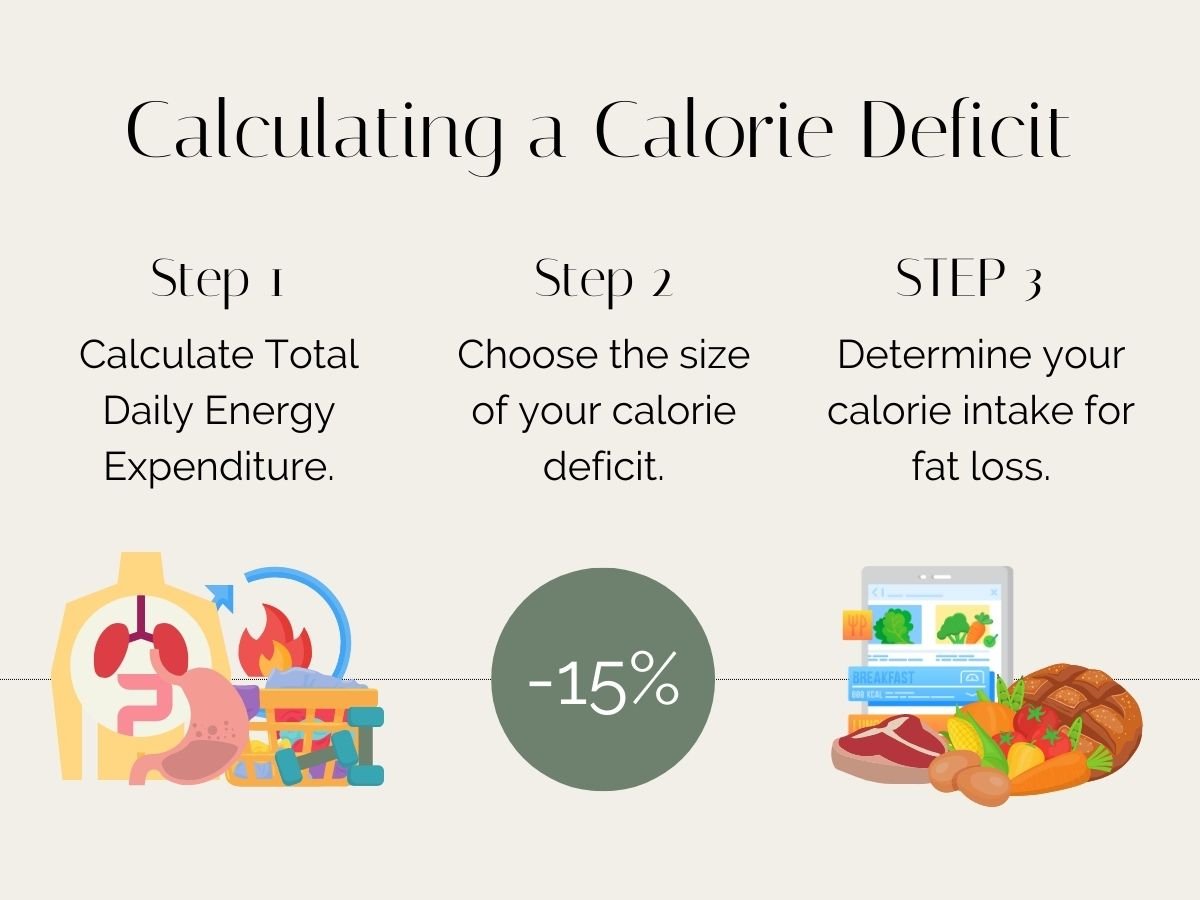“I Was Always Dieting—But Never Losing”: How a Calorie Deficit Helped Her Lose 37 Pounds in 90 Days (Without Giving Up Carbs)
“I didn’t want another diet. I wanted my life back,” says 29-year-old Vanessa Cruz, adjusting her oversized hoodie as she sits cross-legged on her couch in Atlanta. “I wasn’t looking for perfection. I just wanted to be able to breathe easier and zip my jeans without a fight.”
Spoiler alert: she didn’t cut carbs. She didn’t drink detox tea. She didn’t even cancel her weekly wine night.
What she did do? Embrace a calorie deficit. And lose 37 pounds in just 90 days.

“I Was Counting Points, Macros, Steps—Everything. But I Still Gained Weight.”
Before Vanessa learned what a calorie deficit really meant, she tried it all.
“I was doing two-a-day workouts, skipping dinners, even drinking black coffee for dinner sometimes,” she says, half-laughing, half-cringing. “And somehow, the scale just kept climbing.”
At 5’6” and 192 pounds, Vanessa wasn’t just physically uncomfortable. She was emotionally drained. Tired of being the “before” photo in her own life.
Then, during one doom-scroll session, she landed on a Reddit thread titled “Calorie Deficit Changed My Life.”
“I didn’t think it could be that simple. But I was desperate enough to try.”
What Is a Calorie Deficit—And Why Does It Actually Work?
Let’s break it down the way your honest best friend would explain it at brunch:
A calorie deficit happens when you eat fewer calories than your body burns in a day. Your body then turns to stored fat for fuel. And boom—weight loss happens.
According to WebMD and Healthline, a deficit of 500–750 calories per day is both safe and effective. That usually means aiming to lose 1–1.5 pounds per week.
So instead of juice cleanses or obsessing over superfoods, Vanessa started focusing on one thing: Was she consistently in a calorie deficit?
How Vanessa Used a Calorie Deficit to Lose 37 Pounds—Without Feeling Deprived
Vanessa didn’t count every almond or cry into her meal-prep containers. She built a system that fit her life, not the other way around.
-
Maintenance Calories (Estimated): 2,200/day
-
Calorie Goal: 1,500–1,700/day
-
Deficit: ~500–700/day
-
Average Weekly Weight Loss: 2.5–3 pounds
And yes, that included:
-
Friday pasta nights (controlled portions, but still pasta)
-
Sunday mimosas (just one, but it counted!)
-
Daily chocolate (a square of 70% dark was her non-negotiable)
“I finally felt like I was eating like a grown woman instead of some guilt-ridden intern,” she said.

“I Started Losing Inches Before the Pounds. And Honestly, That Was More Motivating.”
By Week 2, her clothes fit better. By Week 4, her face had noticeably slimmed down. By Week 6, people started asking, “What are you doing? You look amazing.”
“It wasn’t just the weight. It was my energy. I wasn’t exhausted all the time. I was finally sleeping through the night. I stopped waking up feeling heavy—physically and mentally.”
And she wasn’t spending hours in the gym. She walked 20–30 minutes a day and added two strength sessions a week with dumbbells in her living room.
Calorie Deficit Myths—Let’s Clear the Air
Nope. Vanessa was eating 1,600–1,700 calories a day and felt satisfied. The key was nutrient-dense foods—think eggs, chicken, roasted veggies, Greek yogurt, fruit, and yes, carbs.
Not true. Your body also burns calories through non-exercise activity like standing, fidgeting, and doing laundry (NEAT: Non-Exercise Activity Thermogenesis).
“I started taking the stairs and walking to grab coffee instead of DoorDashing everything,” she says. “It added up—without adding stress.”
Only if you stop adjusting. As you lose weight, your calorie needs drop too. Vanessa recalculated every 10 pounds and tweaked her intake slightly.
Celebrity Shoutouts: Yes, They Do It Too
Though they don’t always label it, plenty of celebs swear by calorie deficit living.
-
Adele reportedly lost 100+ pounds through calorie control, Pilates, and walking.
-
Chris Pratt credited a “500 calorie deficit per day” while preparing for Guardians of the Galaxy.
-
Even Rebel Wilson said her “Year of Health” came down to “moving more and being mindful about food—not cutting it all out.”
Vanessa took that as proof: “If it works for billionaires with chefs, it can work for regular girls with air fryers.”
How to Stay in a Calorie Deficit Without Losing Your Mind
Vanessa’s top sanity-saving tips:
-
Start with a calculator. Find your TDEE (Total Daily Energy Expenditure) and subtract 500.
-
Don’t be extreme. Starving isn’t sustainable. Aim for consistency over perfection.
-
Meal prep light. She prepped two meals a day—just enough to avoid the drive-thru spiral.
-
Track honestly. A tablespoon of peanut butter is not “just a spoonful” when it’s a heaping spoonful.
-
Take progress pics. The scale lies. Photos? Never.
“Calorie Deficit Gave Me Control—Not Obsession”
Vanessa’s voice cracks a little as she talks about the emotional side of her journey.
“I used to cry in dressing rooms. I’d avoid pool parties. I’d panic before dinner dates.”
Now? She wears crop tops. She books beach vacations. She takes selfies—full body. And she’s still not done.
“This isn’t a finish line,” she smiles. “This is just me—finally in the driver’s seat.”
FAQs: What People Ask Most About Calorie Deficit
1. What exactly is a calorie deficit? A calorie deficit means you’re eating fewer calories than your body burns in a day, prompting weight loss.
2. How big should my calorie deficit be? Experts recommend 500–750 calories per day, which typically leads to 1–1.5 pounds of fat loss per week.
3. Is 1,200 calories too low? For many adults, yes. Going too low can slow metabolism, mess with hormones, and trigger binge cycles. Stick to a reasonable deficit.
4. Do I need to exercise to be in a calorie deficit? Nope! You can lose weight through diet alone. But exercise helps preserve muscle, boosts mood, and supports long-term success.
5. What if the scale stops moving? You might need to recalculate your deficit, increase movement, or take a break. Plateaus are normal—and they pass.
Final Thought: “You Don’t Need a New Life. You Just Need a New Strategy.”
Vanessa’s journey didn’t start in a gym. It didn’t start with a New Year’s resolution.
It started in a moment of frustration, followed by a decision to try something simple, realistic, and free.
“A calorie deficit didn’t just shrink my body. It quieted the chaos in my brain,” she says. “And for the first time in years, I feel like me again.”
So if you’re tired of starting over every Monday, maybe it’s time for less drama—and more data.
One number. One goal. One step at a time. That’s the power of a calorie deficit.